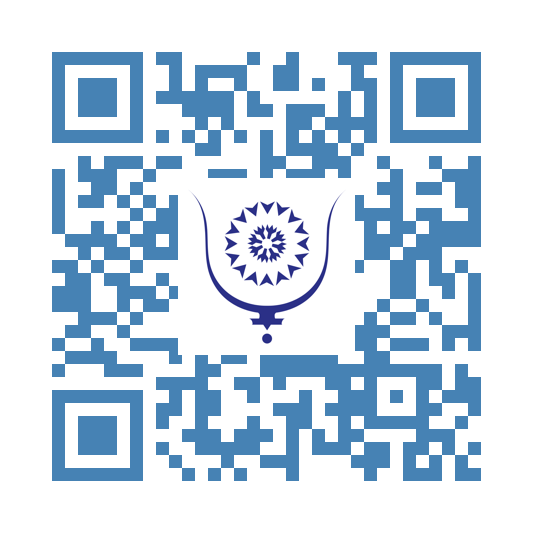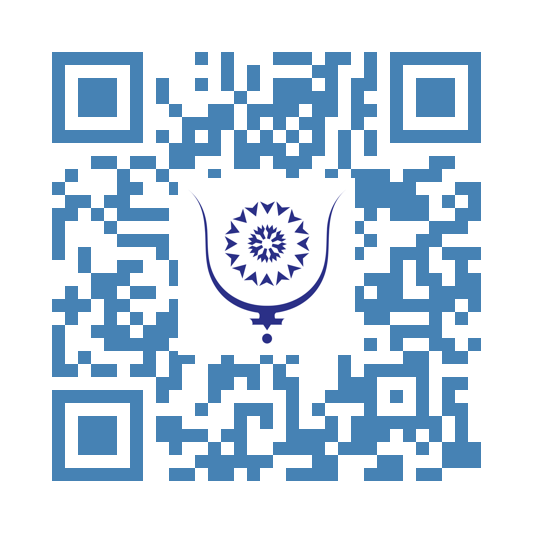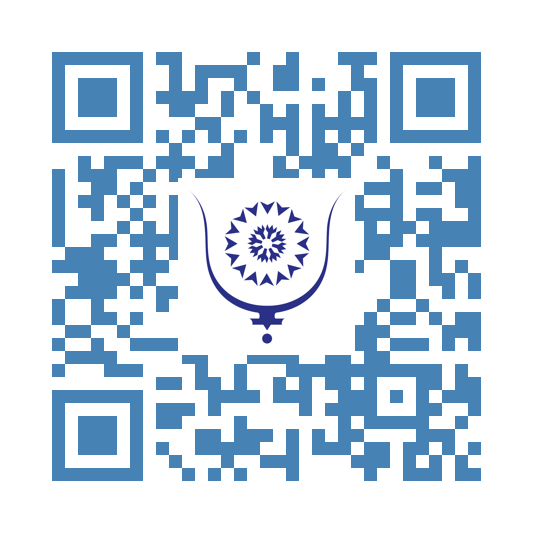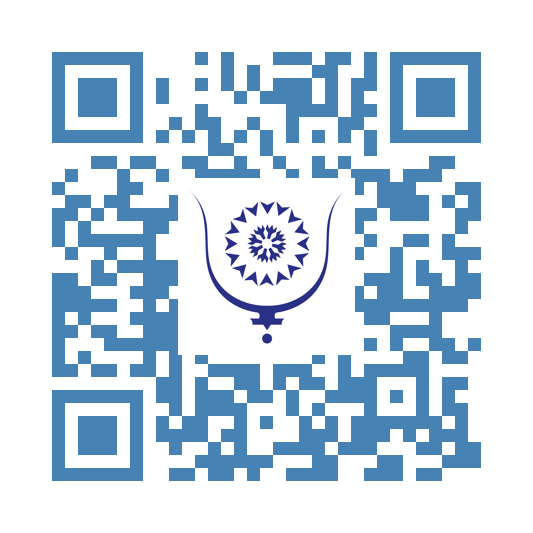Walking Barefoot: The Urgency of a Political Awakening in Morocco...
136
The current Moroccan context is intense, though not unprecedented. Morocco has experienced others before. The protests shaking several cities across the Kingdom, notably led by the collective GenZ 212, are not mere mood swings. They reflect a deep, multifaceted, and long-contained social anger. Inspired perhaps by youth movements seen elsewhere, these protests are rooted in a distinctly Moroccan reality: a young, connected, educated people but disillusioned with a system they believe no longer meets their expectations. This anger is multiple and undeniably legitimate, voiced on behalf of all generations.
The demands focus on recurring but now explosive themes: fighting corruption, the deterioration of certain everyday public services like education and healthcare, the crisis of unemployed graduates, and dangerously widening social inequalities. To this is added a direct critique of the government's economic priorities.
This youth, which no longer identifies with official rhetoric, expresses a new demand: a fairer, more transparent, and closer government. It calls for alignment between political speech and public action. This is not a depoliticized generation as some would like to think, but a generation that rejects pretenses and technocratic answers. It practices politics on the internet, often without realizing it. It speaks the language of everyday life: the price of chicken, healthcare, transport—not inflation rates or macroeconomic indices. It expresses itself through clicks, avatars, emojis, and stickers. It writes Darija in Latin letters and numbers. It seeks information quickly, responds instantly and succinctly. It dislikes long speeches it finds tedious. It lives in a globalized world but proudly claims its Moroccan specificity.
When a citizen complains about the price of tomatoes, it's not an indicator’s graph or an IMF report that will reassure them; they speak in dirhams, not percentages.
So what else can be done if not for decision-makers to walk barefoot from time to time? Walking barefoot means returning to reality. It means feeling the country.
In this tense climate, the metaphor of the late Hassan II inviting architects to “walk barefoot to feel the country” takes on a striking resonance. Originally meant to emphasize understanding Morocco’s soul before building, it has become a political imperative today.
Walking barefoot means stepping down from one’s pedestal, leaving air-conditioned offices, abandoning PowerPoints and slogans to listen to the ground. It means accepting to feel the dust of rural roads, hear the cries from saturated hospitals, share the despair of teachers, or the loneliness of unemployed youth.
They must understand what a “two-speed Morocco” means, denounced by His Majesty King Mohammed VI himself. Part of the country lives in modernity, connected and optimistic, visible in infrastructure projects and international forums. The other, the majority, struggles with precariousness, poverty anxiety, neglect, and injustice. The gap between the two is widening. It is precisely this gap that the current protests expose.
A few years ago, hope was born for a new development model, requested by His Majesty the King himself. What is its status today? Where is this model and its recommendations?
The New Development Model (NDM), much praised at its launch, seems today to have been lost within bureaucratic and communication labyrinths. Its ambitions were high: reduce inequalities, strengthen social cohesion, encourage initiative. But on the ground, Moroccans hardly see the fruits. It has simply been forgotten.
The prevailing impression is one of an increasing gap between promises and reality, between triumphant speeches and citizens’ daily life. This disenchantment is not only economic but also moral: trust is eroding, public discourse is losing meaning.
Youth has forever been the moral compass of nations. It says out loud what others think quietly. The youth mobilization acts as a salutary shock.
The movement is not monolithic: it unites students, unemployed youth, young workers, artists, teachers. But all share a common feeling: having been sidelined by a political and economic system that offers no prospects.
This youth does not attack their country; it wants to save it from a threatening drift. It demands social justice, dignity, and respect. It wants not only to be spoken about but to be spoken with.
It is a call for a rebuilding of social and political bonds, for genuine and sincere listening. The biggest mistake those in power could make is to underestimate this anger, or worse, to despise it. In a world where frustrations are expressed online before hitting the streets, ignoring youth voices sets the stage for a worse crisis.
The urgency is to rediscover the spirit of this millennial country. Today, walking barefoot means returning to essentials:
- Visiting village schools where children lack everything,
- Visiting hospitals where some doctors perform miracles with nothing, but others are absent or resting after working elsewhere,
- Listening to mothers who struggle to feed their families,
- Understanding youth who refuse to live waiting for an administrative miracle.
A country is not governed by PowerPoint slides, reports commissioned from foreign agencies, or promises crafted for social networks. It is governed with an awareness of reality, with the sense of the people, and the will to fix what hurts.
Morocco has often proven its ability to overcome crises by reinventing itself. It still has the human, cultural, and institutional resources to do so. But this requires a change of perspective, a reconciliation with the truth on the ground, and a renewed political humility.
Walking barefoot means reconnecting with deep Morocco, the Morocco that suffers but also hopes. It also means telling citizens hard truths when it errs and when it is itself the cause of its own misery. Walking barefoot means pushing young people to work and innovate. Only on this condition can social peace, national cohesion, and the country’s future be guaranteed.
Share:
Walking Barefoot: The Urgency of a Political Awakening in Morocco...
copy:
https://bluwr.com/p/409403988
An Illusory Return
276
An Illusory Return
The morning breeze foretells the return of my beloved,
After leaving me for so many years.
If she truly comes, it will be at noon
At least, that’s what she told me.
The morning breeze foretells the return of my beloved,
After leaving me for so many years.
Could it be a premonition?
Will she really come back to me?
Or is it a pious wish,
A dream of a time long gone and faded?
Yet everything seems to foretell her return
On this break of day:
A blue sky, bright and clear,
A sun rising early, strangely so,
Majestic unusually radiant.
The moon takes its leave discreetly and all the better for it.
The morning breeze foretells the return of my beloved,
After leaving me for so many years.
I tremble and waver in my corner like a child,
I cry out in enchantment,
I can no longer keep still
I lose all sense.
A swallow lands upon my balcony,
As if to show me its sympathy.
The morning breeze foretells the return of my beloved,
After leaving me for so many years.
Time stops
it feels like eternity.
The ticking of my watch falters, losing its rhythm,
The hands seem frozen, stretched apart.
I hold my breath,
I can hardly breathe, I’m suffocating,
Sweat pouring from every pore,
My head spinning, my sight blurred.
The morning breeze foretells the return of my beloved,
After leaving me for so many years.
Suddenly, the morning breeze ceases.
I sense that she is not yet ready.
The sun vanishes like a sorcerer,
Hiding behind the clouds.
The moon peeks through now and then,
As if to mock his retreat.
The ticking of my watch resumes its old rhythm,
The clock hands blend together enchantingly.
I catch my breath again,
Regain my composure,
Put my jacket back on,
Recover my reason,
And stop asking questions.
I am convinced she will not return today
She has not kept her word, as always.
I shall wait for another breeze,
On another morning,
That will once again announce her return.
Until then
I’ll go out for a walk.
Dr. Fouad Bouchareb
Rabat, October 26, 2022
All rights reserved.
Share:
An Illusory Return
copy:
https://bluwr.com/p/408581795
The GenZ212 Letter: A Quest for Recognition and Royal Protection...
313
Far be it from me to amplify the so-called letter from a collective claiming to represent GenZ212, but it is necessary to acknowledge that it deserves a critical reading and analysis to understand both its explicit and implicit content.
Psychologically, the appeal to "express a need for recognition" is evident: the very act of addressing His Majesty the King directly reflects a search for symbolic validation. The authors seek to feel heard and to exist in the public space. The use of frustration language in their grievances conveys an emotional charge, mixing disappointment in economic, social, and identity challenges with aspirations for a better future. The letter reveals a tension between ideal and reality, illustrating a typical psychological divide of this generation: high ambition and demand but also fragility and a sense of powerlessness in the face of structural blocks. One can see a projection onto a paternal figure: His Majesty the King is viewed as the ultimate arbitrator, the supreme recourse, implicitly demanding protection and repair, which intermediate institutions have failed to provide.
Sociologically, this is a generation searching for collective identity: the very name GENZ212 (212 being Morocco’s telephone code) reflects a claim of group identification, no longer just as isolated individuals. This highlights an emerging generational consciousness amid distrust towards established structures. The letter reveals criticism of the state, political parties, unions, and traditional institutions seen as disconnected from youth realities.
This youth evolves in a world different from previous generations, using digital tools as leverage. The preference for direct channels (social networks, petitions, public letters) over traditional mediation reveals a sociological shift in collective action modes, underpinned by social and territorial inequalities. The grievances likely illuminate fractures in education, employment, housing, social mobility, access to culture, and health. These themes reflect a society where youth feel the social elevator blocked, aligning with the general sentiment and sadly overlooking many progress made.
Politically, the letter acts as a symbolic contestation. Addressing His Majesty directly can be seen as implicit criticism of governance and intermediaries, bypassing classic political channels. It raises questions of legitimacy: GENZ212 does not speak for all Moroccan youth but claims to represent them, raising issues of representativeness and possible political co-optation.
It is probably a signal to decision-makers: if institutional dialogue channels remain closed, youth may permanently turn away from institutions and radicalize their discourse.
The positive point is a genuine bet on the future. By turning to His Majesty the King, they place trust in the royal authority to drive structural reform, a sign both of loyalty and failure of democratic mediations.
The letter also invites critical reading of style and tone. The style is direct but sometimes naive. It adopts a frank, often unfiltered tone typical of young generations used to spontaneous expression on social media, blogs, or videos. This gives authenticity but sometimes sacrifices argumentative rigor and credibility. The tone oscillates between respect and defiance.
The text addresses His Majesty with marks of deference while openly criticizing society and the state. This dual register expresses tension and hope: wanting to challenge political leaders while remaining within the bounds of monarchical loyalty.
Use of collective vocabulary (“we, the youth,” “our generation,” “the country's future”) shows a desire to speak on behalf of a community. However, the overemphasis sometimes feels more emotional than programmatic. The language is symbolic and identity-focused, with no clear prioritization of grievances. The claims are listed as frustrations without clear structuring into priorities or concrete proposals. Thus, it is more a plaintive tone than strategic approach.
The style is hybrid, mixing activism and advocacy, revealing hesitation between a militant manifesto and a petition addressed solemnly and respectfully to the supreme authority. This perfectly reflects a generation still finding its discursive register, convinced like its elders that improvements must come through the nation’s chosen and defended framework.
The style and tone reinforce the letter’s heartfelt character: sincere, emotional, and collective. However, they suffer from lack of rhetorical maturity (weak structure, redundancies, slogans rather than solutions). Politically, the remarks aim to symbolically touch and spark public debate.
The GenZ212 letter is thus a hybrid act combining psychological distress, sociological claim, and political gesture. It highlights:
- A feeling of exclusion and marginalization among youth,
- A need for recognition and direct listening,
- A questioning of intermediaries,
- A strong expectation towards the monarchy as guardian of justice and a radiant future.
Ultimately, the GenZ212 letter is a quest for recognition and royal protection.
It is worth noting that the phenomenon is not unique to Morocco and arrived through osmosis as it exists in many parts of the world. These movements are often amplified by digital platforms, turning isolated frustrations into collective mobilizations despite geographical or cultural differences, development gaps, and democracy levels. It is also important to note the proximity of manipulation and nihilistic speech impact.
Share:
The GenZ212 Letter: A Quest for Recognition and Royal Protection...
copy:
https://bluwr.com/p/408455984
He thinks....
471
He thinks....
He thinks that in his nailed hands
I'm nothing but a toy.
I don’t think I’ll go back to him.
Today, everything has changed
As if nothing had ever happened.
And with the innocence of angels from the skies
in the look in his eyes,
He tells me: I am the keeper of this place,
And that I am his one true love.
He brought me flowers.
How could I not accept them?
And all the naivety of youth
I found again in his gentle smile.
I no longer remember... the fire in your eyes.
How did I find myself in his arms?
I laid my head on his chest, proud,
Like a child returned to their father or mother.
Even my long-abandoned dresses
danced at his feet, all of them.
I forgave him… and asked how he had been.
And I cried for hours under his armpit.
And without thinking, I gave him my hand,
So it could sleep like a bird in his.
And I forgot all my hatred in a fraction of a second.
Who said I held a grudge against him?
How many times did I say I’d never return?
And yet I came back.
My return is wonderful.
To my first love.
Dr. Fouad Bouchareb
All rights reserved
Toulouse, May 29, 2025
Share:
He thinks....
copy:
https://bluwr.com/p/407026828




